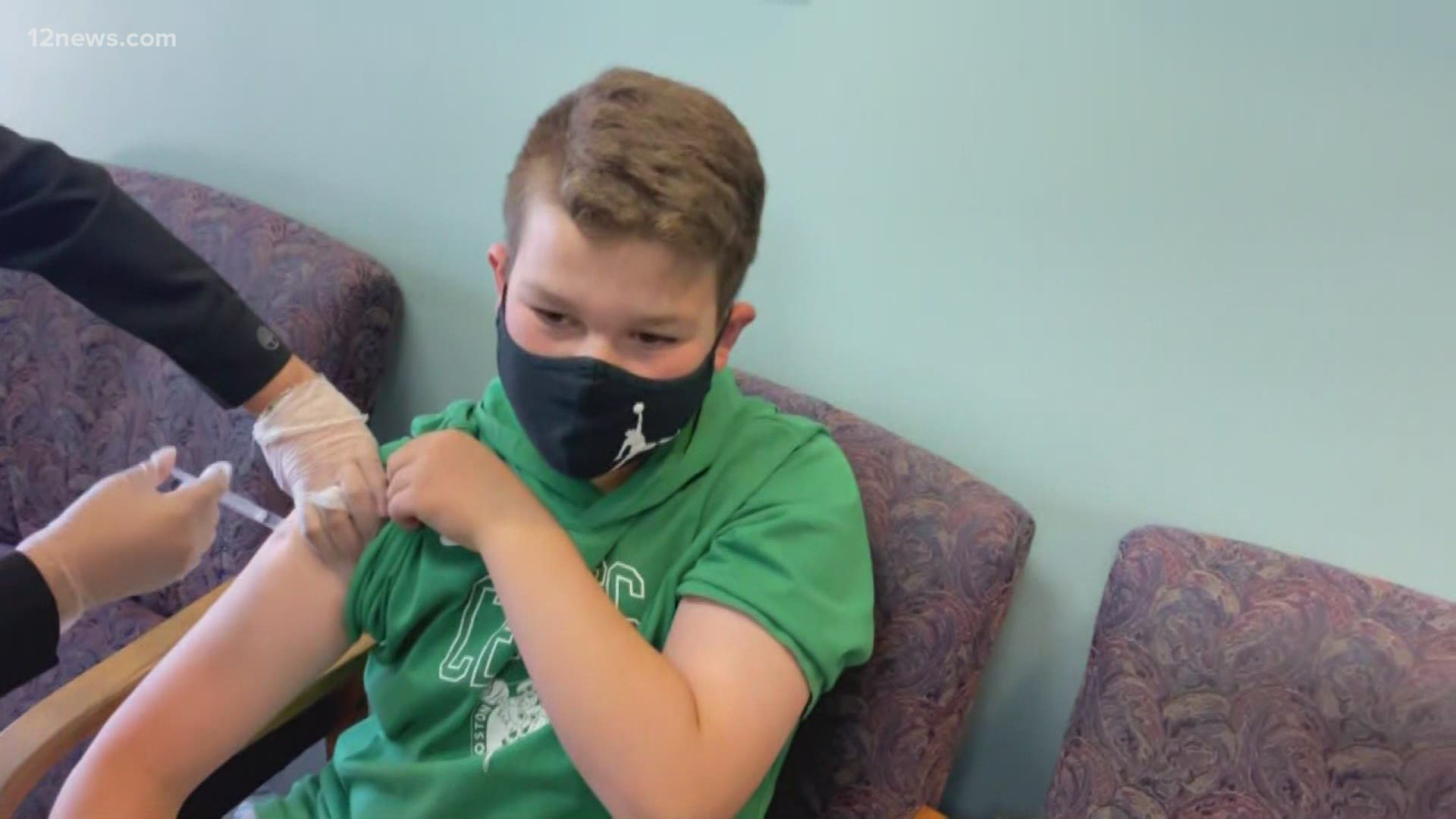PHOENIX — Editor's Note: The above video is from previous coverage after kids were approved for the COVID-19 vaccine.
Are you still deciding whether to get your kid vaccinated against COVID-19?
The CDC approved the Pfizer COVID-19 vaccine for youth 12 to 15 years old under emergency use two weeks ago and that means a whole new population of people is eligible to receive the vaccine.
However, from the looks of recent CDC data, parents are not scrambling to get their kids inoculated against the virus.
1.4% of kids between 12 and 15 and 1.7% of teens between 16 and 17 have received at least one dose in the U.S., according to CDC data.
Dr. Gary Kirkilas, a pediatrician at Phoenix Children’s Hospital, has been fielding many questions from parents and kids about the vaccine. He shared some advice.
Keep it simple and use terms they might already have heard
“They are a little bit more savvy and you can use terms like mRNA. They have probably heard it numerous times," Dr. Kirkilas said.
Dr. Kirkilas encouraged parents to use this term when discussing the vaccine and explaining what it does.
“mRNA is basically the instruction to make the spike protein on the virus and that will help us again provide our immune system the blueprint for the spike protein. So, that if we should experience someone who has covid our body will already be reeved up in order to fight that infection,” Dr. Kirkilas said.
Make connections
“Whenever something is new it is always helpful to compare it to something that is already known,” the doctor explained.
He said that vaccines are meant to help our bodies fight infections. Most kids already get vaccinated against diseases like measles and chickenpox.
“The COVID vaccine is no different. It is a vaccine that will help produce antibodies and these antibodies are part of our immune system and the immune system helps us protect ourselves, so we don’t get diseases,” Dr. Kirkilas said.
Explain what they might experience after the shot
“Basically, what I tell the younger kids is that ‘yeah, you’re not going to feel your best the following day,’ and that’s just basically your immune system is producing your protection, your immunity. For the older kids, again you get a little more savvy with the way that you talk to them. You can say your immune system to producing antibodies,” Dr. Kirkilas said.
Some of the side effects of the injection are arm soreness, sleepiness, and maybe a headache, Dr. Kirkilas explained. He added that in some instances someone might run a fever and get chills.
Use reliable sources of information
Another important piece of advice the doctor had to offer was to find reliable sources of information. This goes for parents and kids who are doing their own research to learn more about what is inside the vaccine and its effect on the body.
“A lot of them have been, at least in my practice, have been exposed to sort of the pseudo-science about like microchips and tracking and things like that, so it is really helpful to sort of use what is exactly in the vaccine. It’s mRNA. It is a technology that has been known for decades,” Dr. Kirkilas added.
Dr. Kirkilas stressed to parents that the vaccine has been shown to be safe and effective.
“This coronavirus is not completely benign so if you want to protect your children. You also want to protect yourself and other people that they pass the virus on to. If they want to get back to a sense of normalcy which can only be had once we reach herd immunity then please get the vaccine for their children," Dr. Kirkilas said.
Sources for more information
12 News on Youtube
Get the latest information about vaccines on the 12 News Youtube page. Subscribe!

